Much has been made about the building of a rail and roads network to Maradi in Niger Republic by the government of President Muhammadu Buhari, Chief Rotimi Amaechi, his transportation minister, and the Chinese. Perhaps, they wish to integrate The Sahel and the Sudanian savanna into an economic/trade zone in the region, with the obvious weakness that it seems to be a unilateral effort.
Before that, people remember that in 1985, the Major General Buhari- Brigadier Idiagbon junta had opposed the appointment, as OAU secretary-general, of Mr. Peter Onu. (Mr. Onu was an Igala from Ebu in Delta State with arguably an Igbo-sounding name). The beneficiary of that opposition was Ide Oumarou, a Nigerien.
The Nigerian Presidency, earlier this year, explained President Buhari’s side of the matter, 36 years after.
Join our WhatsApp ChannelTo be fair to Buhari, it is understandable that he relates more to his kinsmen in The Sahel: for aren’t we all aliens in this nation?
This excerpt from an unpublished work may help put things in their proper perspective.
+++
On January 1, 1900, Col. Fredrick Lugard was appointed the High Commissioner of the newly inaugurated British Protectorate of Northern Nigeria to begin his Second Mission to Nigeria. Most of the missions and projects that awaited him had either been planned or begun by Sir George Goldie. Goldie as we had seen had used the Royal Niger Constabulary to subdue the emirates of Bida and Ilorin. He also made far-reaching treaties with many emirs.
But from then on Lugard would bring his own personality and footprints to bear on what he called “Niger Sudan” in some of earlier reports to Whitehall. Lugard resumed in Lokoja, which had served as Sir Goldie’s administrative capital, but later he moved to Jebba, where the West African Frontier Force had a major garrison, because of its central location. He would move again to Zungeru, a town on the banks of the Kaduna River, a tributary of the Niger.
Recall that it was in Zungeru that he and Flora Lugard made home, briefly, after their marriage. She found the climate at Zungeru very inhospitable. After that first visit she never returned. When Sir Lugard – Lugard was knighted in 1901 so I guess we can address him correctly – returned in 1916 for his Third Mission for the amalgamation of the Northern and Southern British Protectorates, he moved the administrative capital finally to Kaduna.
His first order of business in 1900 was to establish the West African Frontier Force. Next he created the fives provinces of Middle Niger, Benue, Borgu, Bornu, and Kano. Then, he appointed residents for these provinces.
William Wallace, the former Agent General of the Royal Niger Company, who had played such a critical role in the conquest of the emirates of Bida and Ilorin, was appointed Resident of the Middle Niger, which comprised Kabba and Ilorin.
His was a civilian exception for Lugard went on to appoint mostly military officers as residents in the other provinces. His use of military officers served a pragmatic purpose as they would have authority over the garrisons located to protect trade routes in their province. Also, it would instill a sense of command-and-control mentality up and down the administrative organogram. This suited Lugard’s own temperament: Lugard wanted his orders not only to be incontrovertible but to be speedily implemented.
The Victorian era was heady times for the British people. The Napoleonic Wars had finally ended, and Britain seemed to be one of its greatest beneficiaries as its power and profile in Europe rose. The Industrial Revolution which had begun in Britain created prosperity and was lifting millions out of poverty. As it was, exciting newspaper and magazine articles from Fleet Street, and popular fiction from book publishers regaled the public with the heroics of Dr. David Livingstone, Hugh Clapperton, John and Richard Lander, Heinrich Barth, William Balkie, and others, as they traversed the African heartland. Above all, the triumph of British weapons and tactics, and the valor of its officers on the Niger was welcome news compared to the depressing news, for instance, coming out of South Africa where Dr. Leander Starr Jameson had been thoroughly defeated in battle by the Boers.
However, the effect of this titillation of the senses of the British public was to cause a rise in the number of fine officers who volunteered for one or two years of overseas service. Many graduate cadets hurried off to the British protectorates on the Niger. Thus, it was that Lugard had a pool of officers and NCOs to choose from to lead expeditions or appoint as residents. Lugard could use all the help he got for the utter vastness of this territory would have intimidated any other man but not him. From our historical perch, we have come to appreciatehis audaciousness even more.
Some emirs in Kano Province which comprised the Sokoto, Kano, Gwandu, Zaria, and Katsena emirates had proven impervious to Lugard’s own treaty-making overtures; while others rejected aspects of the treaties they had made with Goldie in the past. In fact, Sultan Muhammadu Attahiru had rebuffed him and told him:
_“Between us and you, there are no dealings, except as between Moslems and Unbelievers – war, God Almighty has enjoined us. There is no power or strength save in God.”_
– Richard Gott: Death of a Sultan
The way Lugard resolved this thorny problem was characteristic of the peculiar individualism he brought to teamwork. He who would not tolerate an inferior who queried his order, could act without full consultation with his own superiors. He had been known to disregard the incontrovertible instructions of his superiors on occasion, as the case may be.
Joseph Chamberlain, the Colonial Secretary, wanted to apply diplomacy further with the recalcitrant emirs in Kano Province, and if necessary to deploy an expedition from Lagos headed by Brigadier-General George Kemball, the Inspector-General of the West African Frontier Force.
But Lugard anticipated him and ordered Colonel Morland, a Canadian adventurer, and commandant of the Northern Nigeria Regiment to race Kemball to Kano. Lugard, perhaps, did not care to share the glories of the imminent battles in the north with the Southern Protectorate.
In the end good sense prevailed and both commanders cooperated to conquer Kano which put up a worthy fight to repulse the British but failed. Next the expedition prepared for the final onward, northerly, march to Sokoto.
However, I find it instructive here to tell the story of Brevet-Major Francis Charles Marsh to generate a complete picture of Britain’s human investment in Nigeria. When Brigadier Kemball arrived at the fortified gates and city walls of the Sokoto emirate in March 1903, the city had been abandoned and its people had fled to the provinces in the wake of tales of fire and destruction by bombardment on the city of Kano borne by breathless runners.
Sultan Mohammad Attahiru fled the city too and headed to Burmi where he vowed to make his last stand. Captain W. D. Sword was dispatched to pursue and capture the Sultan. He failed, for he was repulsed by Imam Musa, Attahiru’s host and leader of the last resistance against British rule in Burmi.
Two months later in July, Brevet-Major Charles Marsh was next ordered to subdue Burmi and capture the Sultan. Major Marsh himself led the charge at the intense fighting at the gates. As he deployed ordnance and shouted out tactics, he was struck in the thigh by a poisoned arrow. He died within the hour. British army medics could not save him.
Thus it was, that a fair-haired 37-year-old unmarried British officer from Kensington would fall and die on the banks of the Gongola River, 150 miles southeast of Kano. And what was that he clutched close to his heart? Perhaps the counterfoil of a cheque to Queen Victoria he wrote in his own blood even as his lifeless eyes encompassed the newest reaches of the British empire.
Diplomats may or may not observe a moment’s silence for him, as they deliberated on the influence negotiations, but his contribution and that of countless, and perhaps forgotten others like him, in that amorphous grouping of Unknown Warrior, endures.
The next day Sultan Attahiru, true to his vows, died in battle and the city of Burmi fell to complete colonial Britain’s conquest of the northern territories as a matter of fact. With the death of the Sultan, Lugard brought almost to a conclusion more than a decade of negotiations between Britain and France.
Five years earlier, Lord Salisbury, the British Prime Minister, and Paul Cambon, the French Ambassador, had signed, in London, the Anglo-French Convention of 1898. France got much of the arid, sparsely populated Saharan territory above the 14th Parallel, from Say, a town below Timbuktu but north of Illo in the fractured Borgu empire in French Dahomey – on the right bank of the Niger located on 13° 4′ N and 2° 30′ E in the French colony of Upper Senegal and Niger – to Barrua on the Lake Chad.
Britain got the comparatively more populated and more fertile Sahelian and savanna territories below the said parallel, which Sir Goldie claimed to have pacified or secured by treaty making.
This was a misrepresentation for there were enclaves that were not conquered by the Sokoto Caliphate, which Goldie, then Lugard, had appropriated for Her Majesty. For instance, the Kebbi emirate was inhabited, by among other tribes, the Zuru who were ferocious warriors. The Zuru successfully resisted the Jihad even though many of them later converted to Islam by peaceful means.
There were also some nations in the Middle Belt who defended their independence and would later convert from African Indigenous Religion to Christianity.
Lastly, recognizing Kanem-Bornu as a British sphere of influence was also a bonus for its access to Lake Chad. The Kanuri of Kanem-Bornu had received Islam, almost a half-a-millennium ago, by way of trade with Berbers and Arabs through the Fezzan – in today’s Libya. They were fiercely jealous of their independence and had resisted incursions by Uthman dan Fodio.
Thus, with the overthrow and death of the Sultan, the French forfeited the opportunity to actualize the grandiose visions of Eugene Etienne, former French colonial undersecretary, who reportedly said:
“If a perpendicular were dropped from the frontiers of Tunisia through Lake Chad to the Congo, then a major part of the territories enclosed by the perpendicular and the sea is either French or destined to come under French influence.”_
– Claire Hirshfield: The Struggle For Primacy: Hanotaux, Lebon and The Cazemajou Affair
That never came to pass. In fact, by 1904, the French were so anxious to form an alliance with Britain against the resurgent German power, that they signed the _Entente Cordiale_ – French for ‘Warm Understanding’. This agreement settled all outstanding contentious issues France had with Britain around the world.
In Africa:
Egypt was recognized as a British sphere of influence, with co-equal access to the Suez Canal for both Powers; Morocco was recognized as a French sphere of influence with the understanding that the interests of Spain were protected; the ambiguous, confounding lines in The Gambia (British) and Senegal (French) were sorted out; and Nigeria’s boundaries to the west with Dahomey, to the north with Niger, to the east with Chad and (German) Cameroons, were permanently delimited.
Lugard was a man of characteristic expediency with a relentless and restless energy, who regarded an hour wasted as crime against humanity. Under four years, at the turn of the twentieth century, he had worked furiously to achieve what others could not see and, therefore, did not dream about: save for two.
He had then put his expediency to the service of those two men of extraordinary vision. Thus, did the three of them (Chamberlain, Goldie, and Lugard) – aliens to a people whose destiny they would decide – act with a perfect unanimity of purpose as they shared an uncommon and earnest zeal for a new nation that was even then only an idea. In the end they realized that vision, albeit with a cool, calm, and collected indifference to the wishes of the natives, and were rewarded with Nigeria as a pricey jewel for the British commonwealth.
But for the peoples, whose lands were henceforth either British or French territories, the human cost in terms of societal disruption and upheavals was exorbitant. In his First Mission, in 1894, Lugard had secured Bussa and Illo for the British, while Nikki remained with French Dahomey, thus were the Bariba and Borgawa peoples of Borgu Kingdom splintered.
In the north, The Sahel is the horizontal parcel of land sandwiched between the Sahara Desert and the Sudanian savanna grassland to the south. The peoples of this region had co-existed in a borderless expanse of land until colonialism. So, when Lugard claimed the territories from Say to Barrua, on the 14th Parallel, for Britain he split lands and peoples who had, hitherto, regarded themselves as kith and kin.
(Like I said earlier, it is understandable that when Major General Buhari looks across the artificial borders of our colonial masters in the north, he sees his kith and kin, like Ide Oumarou. But that begs the question, shouldn’t a national leader try and curb his ethnic biases?)
Finally, when Germany lost World War I, Britain and France divvied up German Cameroons in a League of Nations Mandate. That was how a portion of Adamawa kingdom became Cameroonian and the other became Nigerian.
Mr. Albert Ngene writes from Atlanta.

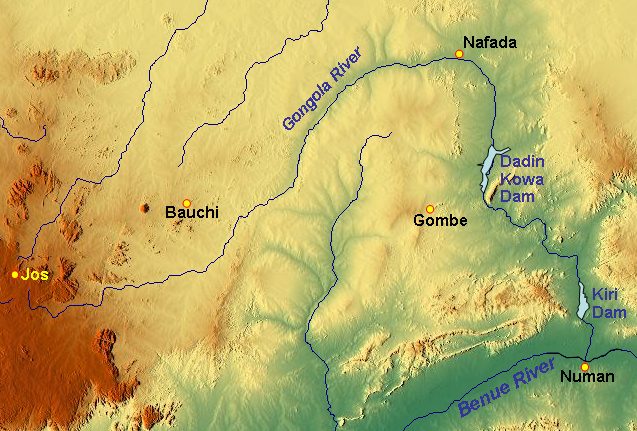


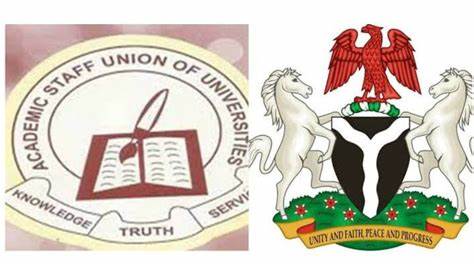
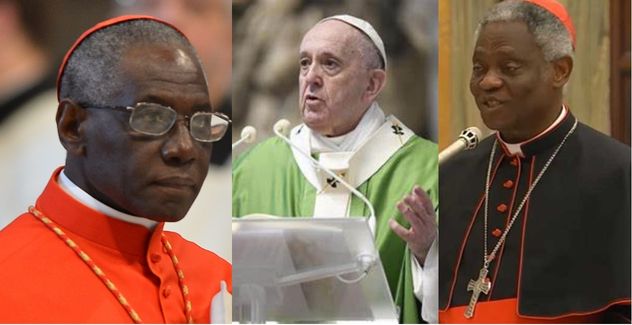









![Trump, Zelenskyy Discuss Peace Plans During Pope Francis’ Funeral In Rome [VIDEO]](https://www.primebusiness.africa/wp-content/uploads/2025/04/Trump-and-Zelenksy-meet-at-Pope-Francis-Burial-150x150.jpeg)
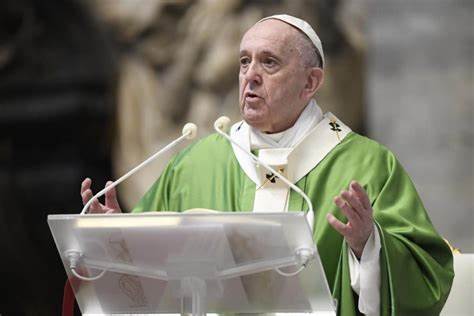

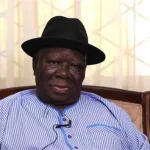
Follow Us